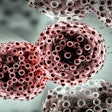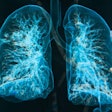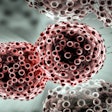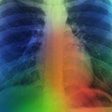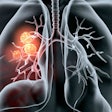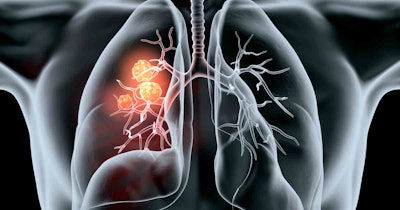
Targeting a cell surface protein could eliminate the lung cancer cells that survive treatment with epidermal growth factor receptor (EGFR) tyrosine kinase inhibitors (TKIs), according to a paper published on Monday in Cancer Cell.
The identification of EGFR as a target transformed the treatment of non-small cell lung cancer (NSCLC) in the 10% to 15% of patients who express the growth factor receptor. EGFR TKIs are well established as first-line treatments for the solid tumor type but even the more potent, third-generation drug Tagrisso (Osimertinib), developed by AstraZeneca, has its limitations.
Most patients have partial responses to treatment. The cancer cells that survive exposure to EGFR TKIs eventually increase in number, leaving patients with a growing tumor that is resistant to the first-line treatment. Cancers that undergo epithelial-to-mesenchymal transition become resistant to most known drugs; relapsed patients lack good treatment options. The situation has created a need for ways to eliminate the reservoirs of drug-resistant cells that remain after treatment with EGFR TKIs.
Responding to that need, researchers at the University of Texas MD Anderson Cancer Center analyzed the proteins expressed on the surface of treatment-resistant NSCLC cells. The analysis showed that CD70, a cell surface protein normally found on immune cells, is highly overexpressed by drug-resistant cells and the residual cells that remain immediately after treatment with an EGFR TKI. The upregulation of CD70 on residual cells led the researchers to speculate that overexpression is an early step in the rise of resistance.
“It was really encouraging to discover that CD70 was upregulated at such an early point in the evolution of drug resistance because it means we can target these cells quickly without needing to wait for them to develop full resistance,” Monique Nilsson, the MD Anderson scientist who led the research, said in a statement.
Nilsson and her collaborators generated in vitro and in vivo data on the efficacy of targeting CD70. The studies showed that CD70-directed antibody-drug conjugates (ADCs) and chimeric antigen receptor (CAR) T cells and natural killer cells eliminate drug-tolerant residual cells. If validated in humans, the anti-CD70 therapies could be given immediately after treatment with an EGFR TKI to wipe out residual cells that would otherwise enable the resurgence of the tumor.
The development of CD70 treatments for NSCLC could build on efforts to treat other cancers by targeting the cell surface protein. Multiple anti-CD70 ADCs and CAR-T cell therapies are in early-phase clinical development in indications including renal cell carcinoma. Repurposing the candidates for use after EGFR TKI treatment could accelerate efforts to translate the MD Anderson study into a new NSCLC treatment.








